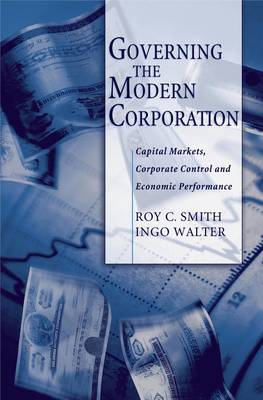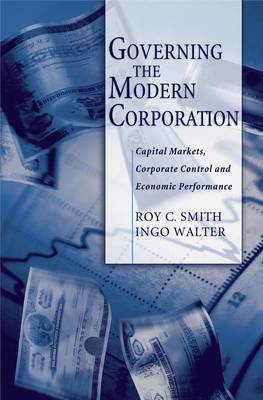
- Retrait gratuit dans votre magasin Club
- 7.000.000 titres dans notre catalogue
- Payer en toute sécurité
- Toujours un magasin près de chez vous
- Retrait gratuit dans votre magasin Club
- 7.000.0000 titres dans notre catalogue
- Payer en toute sécurité
- Toujours un magasin près de chez vous
Governing the Modern Corporation
Capital Markets, Corporate Control, and Economic Performance
Roy C. (Kenneth Langone Professor of Finance and Entrepreneurshi, Ingo (Seymour Milstein Professor of Finance, Corporate Governanc
Livre relié
103,95 €
+ 207 points
Description
Focusing on the conduct of investors, intermediaries and regulators, as well as that of corporate boards, this book examines critically the corporate governance issues before and after the bursting of the stock market bubble in 2000. It finds conflicts of interest to be embedded in the system, and suggests remedies to return it to the free market.
Spécifications
Parties prenantes
- Auteur(s) :
- Editeur:
Contenu
- Nombre de pages :
- 336
Caractéristiques
- EAN:
- 9780195171679
- Date de parution :
- 23-02-06
- Format:
- Livre relié
- Dimensions :
- 236 mm x 160 mm
- Poids :
- 601 g

Les avis
Nous publions uniquement les avis qui respectent les conditions requises. Consultez nos conditions pour les avis.






